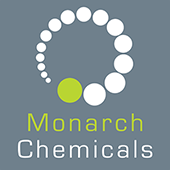Hydrogen peroxide (H₂O₂) is a versatile chemical widely used across numerous industries, largely due to its strong oxidising properties. Even at lower concentrations, it is an effective disinfectant and bleaching agent, with applications ranging from healthcare to paper production. This article explores the science behind hydrogen peroxide’s powerful effects, its diverse uses, and its role as an environmentally favourable alternative to more harmful chemicals.
The Science Behind Hydrogen Peroxide: A Potent Oxidiser
Hydrogen peroxide is a compound made up of two hydrogen atoms and two oxygen atoms (H₂O₂). Its effectiveness stems from its ability to decompose into water (H₂O) and oxygen (O₂) upon contact with organic matter. This process releases oxygen and triggers oxidation reactions, making hydrogen peroxide a highly effective agent for disinfection and bleaching. Its ability to break down bacteria, viruses, and fungi highlights its broad effectiveness.
While commonly available in 3-5% solutions for household use, hydrogen peroxide is also available in more concentrated, industrial-grade forms for tasks like large-scale disinfection, bleaching, and environmental remediation.
Hydrogen Peroxide as a Disinfectant: From Hospitals to Food Processing
Healthcare: Sterilisation and Infection Control
In healthcare, hydrogen peroxide is a high-level disinfectant used to sterilise medical equipment and hospital surfaces. Its strong oxidising properties break down the cell walls of harmful pathogens, including bacteria, viruses, and fungi, making it an invaluable tool for preventing healthcare-associated infections (HCAIs).
Its role in combating antibiotic-resistant bacteria, such as MRSA, is particularly significant. Research conducted by University College London Hospitals (UCLH) Trust found that hydrogen peroxide vapour and blue light treatments significantly reduced infections and improved hygiene standards.
Agriculture and Food Processing
Hydrogen peroxide is also extensively used in agriculture and food industries. It sterilises surfaces, machinery, and water supplies, ensuring hygiene and safety in food production. It plays a critical role in eliminating harmful pathogens, thus ensuring the safety of fresh produce.
In water treatment, hydrogen peroxide purifies drinking water, disinfects swimming pools, and removes organic contaminants. Its breakdown into water and oxygen leaves no harmful residues, making it ideal for environments where chemical residue is undesirable.
Hydrogen Peroxide as a Bleaching Agent: Clean, White, and Sustainable
Paper and Pulp Industry
In the paper manufacturing sector, hydrogen peroxide is an essential bleaching agent. It whitens paper pulp by breaking down lignin, the component of wood that causes discolouration. As an alternative to chlorine-based bleaches, hydrogen peroxide avoids producing harmful by-products like dioxins. Many British paper manufacturers, including those associated with the Confederation of Paper Industries (CPI), now favour hydrogen peroxide due to its effectiveness and reduced environmental impact.
Textile Industry
Hydrogen peroxide is also widely used in the textile industry for bleaching fabrics. It brightens textiles, particularly cotton and other natural fibres, without the negative environmental effects of chlorine. This makes it the preferred choice for high-quality garment production, as it ensures fabric strength while delivering bright, white finishes.
Household Cleaning and Laundry
Hydrogen peroxide in diluted forms is found in various cleaning and laundry products. It is a key ingredient in eco-friendly laundry detergents, known for whitening clothes without harsh bleaches. It is also a popular choice for sanitising bathroom surfaces, removing mould, and cleaning tiles.
Environmental Impact of Hydrogen Peroxide and Sustainability
A key advantage of hydrogen peroxide is its environmental sustainability. Unlike chlorine-based disinfectants and bleaches, hydrogen peroxide breaks down into water and oxygen, leaving no toxic residues. This makes it particularly valuable for use in wastewater treatment and other industrial processes where environmental regulations are strict.
Sustainable Applications:
Agriculture: Hydrogen peroxide is used in sustainable farming to disinfect irrigation systems, water supplies, and soil, without introducing harmful chemicals into ecosystems.
Wastewater Treatment: Water treatment plants employ hydrogen peroxide to break down pollutants, ensuring safer water discharge into rivers and seas.
Industrial Cleaning: In industrial settings, hydrogen peroxide provides a sustainable cleaning option, oxidising contaminants without leaving toxic by-products.
Conclusion: The Power and Potential of Hydrogen Peroxide
Hydrogen peroxide is an exceptionally powerful and versatile chemical, with widespread applications across industries like healthcare, agriculture, and manufacturing. Its role as a disinfectant and bleaching agent continues to grow as industries increasingly value its effectiveness and benefits. When used with proper safety measures, hydrogen peroxide offers a highly effective solution to modern challenges in cleaning, disinfection, and environmental protection.
As a leading UK bulk distributor of Hydrogen Peroxide please visit our product page for more information





